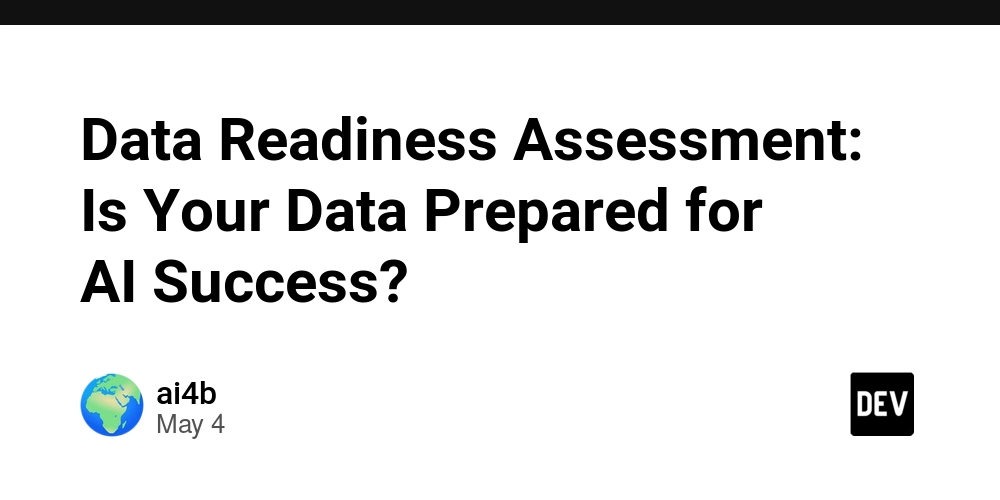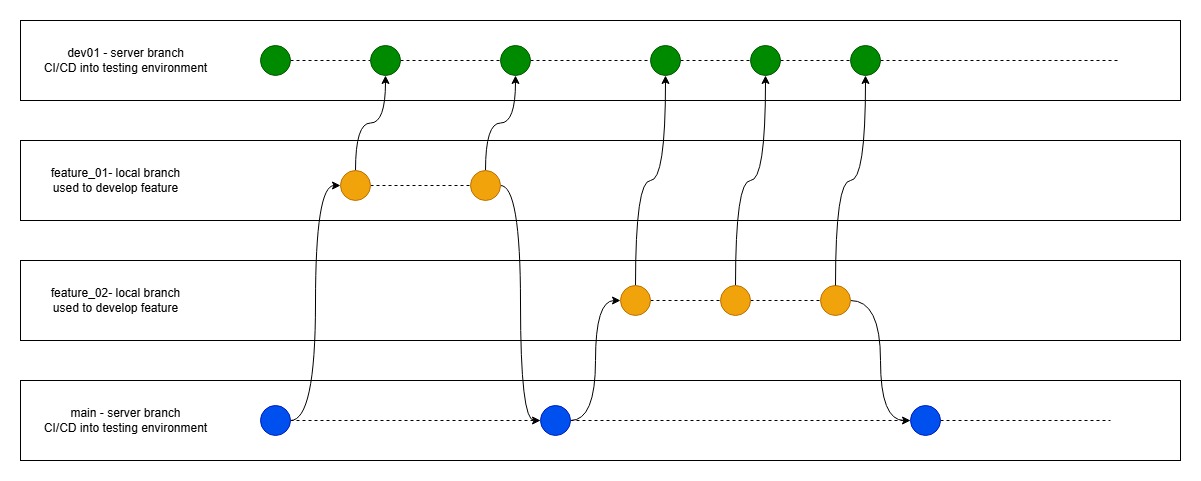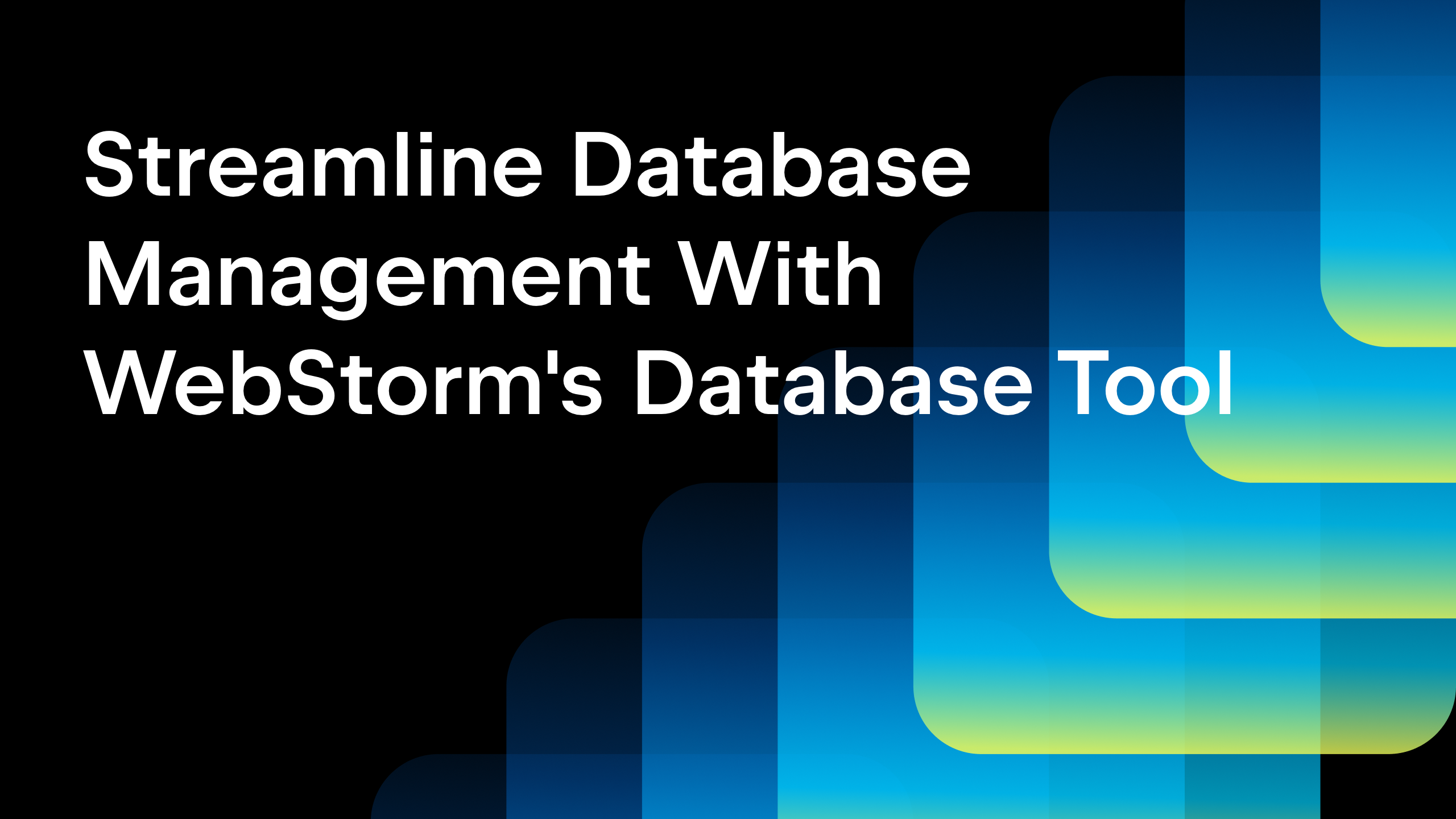Data Readiness Assessment: Is Your Data Prepared for AI Success?
Introduction Artificial Intelligence (AI) has emerged as a transformative force across industries, promising unprecedented efficiency, innovation, and competitive advantage. However, the success of AI initiatives is inextricably linked to the quality and readiness of the data that powers them. As the saying goes, "garbage in, garbage out" – this maxim is particularly relevant in AI implementation, where poor data quality leads directly to unreliable outputs, biased decisions, and failed projects. This comprehensive guide explores data readiness assessment for AI implementation, providing a structured framework to evaluate if your organization's data is prepared to support successful AI initiatives. We'll examine key components of data readiness, assessment methodologies, and best practices to ensure your data foundation is robust enough to deliver AI success. The Critical Role of Data in AI Success Why Data Readiness Matters According to multiple studies and industry reports, data-related issues are among the primary reasons for AI project failures: Poor data quality alone costs businesses trillions of dollars annually, with the US economy losing over $3 trillion each year to data quality issues McKinsey reports that data preparation typically consumes 80% of data scientists' time in AI projects IBM's Watson healthcare project faced significant challenges due to inaccurate training data, leading to flawed recommendations Nearly 80% of AI projects fail to reach production, with data quality cited as a leading cause Data readiness for AI goes beyond traditional data management. While traditional data quality focuses on general improvement across all systems, AI data readiness is use-case specific, requiring tailored preparation for each AI application's unique requirements. The Business Impact of Data Readiness Organizations with AI-ready data experience significant advantages: Improved model performance and accuracy Reduced time-to-value for AI initiatives Enhanced ability to generalize AI applications across different contexts Stronger regulatory compliance and ethical AI implementation Competitive advantage through faster, more successful AI deployments Comprehensive Data Readiness Assessment Framework A thorough data readiness assessment should evaluate multiple dimensions of your data ecosystem to determine AI preparedness. Here's a structured framework incorporating insights from leading organizations including Deloitte, Gartner, McKinsey, and industry best practices: 1. Data Understanding and Context Assessment Areas: Data Inventory and Mapping: Have you identified and cataloged all relevant data sources for your AI use cases? Business Context Alignment: Is there clear documentation connecting data assets to specific business objectives and AI use cases? Metadata Management: Do you maintain comprehensive metadata that provides context for your data assets? Data Dictionary: Is there a centralized repository defining data elements, their relationships, and business meanings? Key Indicators of Readiness: Comprehensive data catalog with clear lineage documentation Well-defined business glossary connecting data to business processes Accessible metadata repository with technical and business context Data discovery mechanisms that enable quick identification of relevant datasets 2. Data Quality and Integrity Assessment Areas: Accuracy: Does your data correctly represent the real-world entities and events it describes? Completeness: Are there significant gaps or missing values in critical data fields? Consistency: Is your data consistent across different systems and time periods? Timeliness: Is your data current enough for the intended AI applications? Uniqueness: Have duplicates been identified and addressed appropriately? Validity: Does your data conform to defined formats, types, and ranges? Key Indicators of Readiness: Established data quality metrics with regular monitoring Automated data validation processes Clear data quality improvement roadmap Data profiling capabilities to identify quality issues Data cleansing procedures for addressing common quality problems 3. Data Governance and Ethics Assessment Areas: Data Ownership: Are data owners clearly defined with established responsibilities? Privacy Compliance: Does your data handling comply with relevant regulations (GDPR, CCPA, etc.)? Ethical Use Frameworks: Are there processes to identify and address potential biases in your data? Data Lifecycle Management: Are data retention, archiving, and deletion processes defined? Access Controls: Are appropriate access restrictions implemented to protect sensitive data? Key Indicators of Readiness: Formal data governance framework with assigned roles and responsibilities Documented privacy impact assessments for AI applications Bias detection and mitigation procedures Clear da

Introduction
Artificial Intelligence (AI) has emerged as a transformative force across industries, promising unprecedented efficiency, innovation, and competitive advantage. However, the success of AI initiatives is inextricably linked to the quality and readiness of the data that powers them. As the saying goes, "garbage in, garbage out" – this maxim is particularly relevant in AI implementation, where poor data quality leads directly to unreliable outputs, biased decisions, and failed projects.
This comprehensive guide explores data readiness assessment for AI implementation, providing a structured framework to evaluate if your organization's data is prepared to support successful AI initiatives. We'll examine key components of data readiness, assessment methodologies, and best practices to ensure your data foundation is robust enough to deliver AI success.
The Critical Role of Data in AI Success
Why Data Readiness Matters
According to multiple studies and industry reports, data-related issues are among the primary reasons for AI project failures:
- Poor data quality alone costs businesses trillions of dollars annually, with the US economy losing over $3 trillion each year to data quality issues
- McKinsey reports that data preparation typically consumes 80% of data scientists' time in AI projects
- IBM's Watson healthcare project faced significant challenges due to inaccurate training data, leading to flawed recommendations
- Nearly 80% of AI projects fail to reach production, with data quality cited as a leading cause
Data readiness for AI goes beyond traditional data management. While traditional data quality focuses on general improvement across all systems, AI data readiness is use-case specific, requiring tailored preparation for each AI application's unique requirements.
The Business Impact of Data Readiness
Organizations with AI-ready data experience significant advantages:
- Improved model performance and accuracy
- Reduced time-to-value for AI initiatives
- Enhanced ability to generalize AI applications across different contexts
- Stronger regulatory compliance and ethical AI implementation
- Competitive advantage through faster, more successful AI deployments
Comprehensive Data Readiness Assessment Framework
A thorough data readiness assessment should evaluate multiple dimensions of your data ecosystem to determine AI preparedness. Here's a structured framework incorporating insights from leading organizations including Deloitte, Gartner, McKinsey, and industry best practices:
1. Data Understanding and Context
Assessment Areas:
- Data Inventory and Mapping: Have you identified and cataloged all relevant data sources for your AI use cases?
- Business Context Alignment: Is there clear documentation connecting data assets to specific business objectives and AI use cases?
- Metadata Management: Do you maintain comprehensive metadata that provides context for your data assets?
- Data Dictionary: Is there a centralized repository defining data elements, their relationships, and business meanings?
Key Indicators of Readiness:
- Comprehensive data catalog with clear lineage documentation
- Well-defined business glossary connecting data to business processes
- Accessible metadata repository with technical and business context
- Data discovery mechanisms that enable quick identification of relevant datasets
2. Data Quality and Integrity
Assessment Areas:
- Accuracy: Does your data correctly represent the real-world entities and events it describes?
- Completeness: Are there significant gaps or missing values in critical data fields?
- Consistency: Is your data consistent across different systems and time periods?
- Timeliness: Is your data current enough for the intended AI applications?
- Uniqueness: Have duplicates been identified and addressed appropriately?
- Validity: Does your data conform to defined formats, types, and ranges?
Key Indicators of Readiness:
- Established data quality metrics with regular monitoring
- Automated data validation processes
- Clear data quality improvement roadmap
- Data profiling capabilities to identify quality issues
- Data cleansing procedures for addressing common quality problems
3. Data Governance and Ethics
Assessment Areas:
- Data Ownership: Are data owners clearly defined with established responsibilities?
- Privacy Compliance: Does your data handling comply with relevant regulations (GDPR, CCPA, etc.)?
- Ethical Use Frameworks: Are there processes to identify and address potential biases in your data?
- Data Lifecycle Management: Are data retention, archiving, and deletion processes defined?
- Access Controls: Are appropriate access restrictions implemented to protect sensitive data?
Key Indicators of Readiness:
- Formal data governance framework with assigned roles and responsibilities
- Documented privacy impact assessments for AI applications
- Bias detection and mitigation procedures
- Clear data stewardship model with accountability measures
- Regular compliance audits and reporting
4. Data Accessibility and Technical Infrastructure
Assessment Areas:
- Data Integration: Can data from different sources be effectively combined for AI use?
- Data Storage and Processing: Is your infrastructure scalable to handle AI workloads?
- API and Service Accessibility: Can AI systems easily access required data?
- Real-time Capabilities: If needed, can your data infrastructure support real-time AI applications?
- Data Versioning: Are mechanisms in place to track data changes over time?
Key Indicators of Readiness:
- Modern data architecture supporting diverse AI workloads
- Efficient data pipelines with appropriate latency characteristics
- Well-documented APIs for data access
- Scalable computing resources for AI model training and inference
- Clear data versioning and configuration management
5. Data Relevance and Representativeness
Assessment Areas:
- Coverage: Does your data adequately cover the domain and use cases being addressed?
- Diversity: Does your data represent diverse scenarios, populations, and edge cases?
- Historical Depth: Do you have sufficient historical data for training temporal models?
- Feature Richness: Are there enough informative features to support your AI objectives?
- Class Balance: For classification problems, are classes appropriately represented?
Key Indicators of Readiness:
- Domain-specific data adequacy assessments
- Statistical analysis of data distributions and coverage
- Data augmentation strategies for underrepresented cases
- Regular data collection reviews to ensure continued relevance
- Synthetic data generation capabilities for supplementing real data where appropriate
6. Data Security and Resilience
Assessment Areas:
- Encryption: Is sensitive data appropriately encrypted at rest and in transit?
- Anonymization/Pseudonymization: Are personal identifiers properly protected?
- Backup and Recovery: Can data be recovered in case of corruption or loss?
- Breach Prevention and Detection: Are there measures to prevent and identify unauthorized access?
- Resilience Testing: Are data systems regularly tested for resilience?
Key Indicators of Readiness:
- Comprehensive data security policies aligned with industry standards
- Data anonymization techniques appropriate for preserving analytical utility
- Regular security audits and penetration testing
- Incident response procedures for data breaches
- Business continuity plans for critical data assets
Assessment Methodology and Implementation
Assessment Approach
A robust data readiness assessment combines both qualitative and quantitative evaluation methods:
Documentation Review: Examine existing data governance policies, data dictionaries, and technical documentation.
Stakeholder Interviews: Gather insights from data owners, business users, IT staff, and data scientists.
Technical Profiling: Use automated tools to profile and analyze data quality, structure, and relationships.
Use Case Mapping: Assess data readiness in the context of specific AI use cases rather than in isolation.
Gap Analysis: Identify discrepancies between current state and required data readiness level.
Maturity Scoring: Develop a scoring mechanism to quantify readiness across dimensions.
Sample Assessment Checklist
Below is a starter checklist that organizations can adapt to their specific needs:
Data Understanding and Context
- [ ] Complete data inventory exists for relevant business domains
- [ ] Data lineage is documented and visualized
- [ ] Business glossary connects data elements to business concepts
- [ ] Data owners and stewards are identified
- [ ] Data usage patterns are documented
Data Quality and Integrity
- [ ] Data quality metrics are defined and regularly measured
- [ ] Data profiling has been performed across critical datasets
- [ ] Data quality issues are tracked and prioritized
- [ ] Automated data validation processes exist
- [ ] Data cleansing procedures are documented and implemented
Data Governance and Ethics
- [ ] Data governance framework is established
- [ ] Privacy impact assessments are conducted for AI initiatives
- [ ] Ethical guidelines for AI development exist
- [ ] Bias detection protocols are implemented
- [ ] Compliance requirements are documented and addressed
Data Accessibility and Technical Infrastructure
- [ ] Data architecture supports AI workloads
- [ ] APIs for data access are documented and maintained
- [ ] Data pipelines are automated and monitored
- [ ] Appropriate latency characteristics for AI use cases
- [ ] Data integration capabilities across relevant sources
Data Relevance and Representativeness
- [ ] Data adequately represents the problem domain
- [ ] Class distributions are appropriate or correctable
- [ ] Sufficient historical data exists for temporal analysis
- [ ] Edge cases are represented in the dataset
- [ ] Feature richness supports intended AI applications
Data Security and Resilience
- [ ] Data encryption standards are implemented
- [ ] Personal data is properly anonymized
- [ ] Access controls reflect need-to-know principles
- [ ] Disaster recovery procedures exist for data assets
- [ ] Regular security testing of data infrastructure
Maturity Model for Data Readiness
Organizations can assess their current state and progression toward AI data readiness using a maturity model:
Level 1: Ad hoc (Laggards, 0-30%)
- No formal data governance
- Limited data documentation
- Siloed data with inconsistent quality
- Minimal data security and privacy controls
- Reactive approach to data issues
Level 2: Developing (Followers, 31-60%)
- Basic data governance framework
- Partial data documentation and catalog
- Some quality measurements in place
- Foundational data security controls
- Beginning to address data silos
Level 3: Defined (Chasers, 61-85%)
- Comprehensive data governance
- Extensive data documentation and metadata
- Regular data quality monitoring
- Advanced security and privacy controls
- Proactive data quality improvement
Level 4: Optimized (Pacesetters, 86-100%)
- Mature data governance aligned with AI strategy
- Automated metadata management
- Continuous data quality improvement
- Sophisticated security, privacy, and ethics framework
- Data infrastructure optimized for AI workloads
Best Practices for Improving Data Readiness
Strategic Approach
Align with Business Goals: Prioritize data readiness initiatives based on strategic AI use cases rather than pursuing general improvements.
Start Small, Scale Fast: Begin with high-value, manageable data domains and expand as capabilities mature.
Build Cross-functional Teams: Combine business, data, and technology expertise to address data readiness holistically.
Invest in Automation: Leverage tools that automate data profiling, quality monitoring, and metadata management.
Establish Clear Metrics: Define and track objective measures of data readiness improvement.
Technical Implementation
Implement Master Data Management: Establish a single source of truth for critical data entities.
Develop Data Quality Pipelines: Create automated processes for continuous data quality assessment and improvement.
Build Comprehensive Data Catalog: Document all data assets with business and technical metadata.
Create Data Quality Dashboards: Provide visibility into data quality metrics for all stakeholders.
Establish Data Observability: Monitor data pipelines and quality in real-time to catch issues early.
Organizational Enablement
Foster Data Culture: Promote data literacy and quality awareness across the organization.
Define Clear Roles: Establish data stewardship and ownership roles with accountability.
Develop Skills: Invest in training for data management, governance, and quality improvement.
Incentivize Quality: Recognize and reward contributions to data quality improvement.
Share Success Stories: Communicate the impact of improved data readiness on AI outcomes.
Case Study: Data Readiness Transformation for AI
Company Profile:
A mid-sized financial services firm seeking to implement AI for fraud detection, customer service automation, and personalized product recommendations.
Initial Challenges:
- Data scattered across multiple legacy systems
- Inconsistent customer identifiers across systems
- Poor data quality with high rates of missing values
- Limited metadata and documentation
- Insufficient historical data for certain use cases
Assessment Findings:
- Data Understanding: 35% readiness
- Data Quality: 42% readiness
- Data Governance: 28% readiness
- Technical Infrastructure: 50% readiness
- Data Relevance: 45% readiness
- Data Security: 60% readiness
- Overall: 43% readiness (Follower)
Improvement Strategy:
- Established data governance council with executive sponsorship
- Implemented data catalog and business glossary
- Created data quality service level agreements (SLAs)
- Developed customer master data management solution
- Modernized data architecture with data lake and warehouse components
- Implemented data observability platform for monitoring quality
Results After 18 Months:
- Data Understanding: 85% readiness
- Data Quality: 78% readiness
- Data Governance: 82% readiness
- Technical Infrastructure: 90% readiness
- Data Relevance: 80% readiness
- Data Security: 95% readiness
- Overall: 85% readiness (Chaser)
Business Impact:
- Fraud detection AI model achieved 92% accuracy (vs. industry average of 85%)
- Customer service automation handled 65% of inquiries without human intervention
- Personalized recommendations increased product adoption by 28%
- Data preparation time for new AI projects reduced by 70%
- Regulatory compliance risks significantly reduced
Conclusion: The Path Forward
Data readiness is not a one-time project but an ongoing journey that evolves alongside your AI ambitions. As AI capabilities advance and business requirements change, your data readiness framework must adapt accordingly.
Organizations that excel in AI implementation recognize that data readiness is a strategic investment that pays dividends across multiple initiatives. By systematically assessing and improving your data foundation, you position your organization to leverage AI's transformative potential while minimizing risks and accelerating time-to-value.
Start your assessment today—identify where your organization stands, pinpoint the most critical gaps, and develop a roadmap for improvement. Remember that perfect data is not the goal; rather, aim for data that is fit-for-purpose for your specific AI applications. With a strategic approach to data readiness, you can dramatically increase your chances of AI success and unlock new sources of value for your organization.
References
- Deloitte (2024). AI data readiness (AIDR).
- Gartner (2024). AI-Ready Data Essentials to Capture AI Value.
- McKinsey & Company (2023). The state of AI in 2023: Generative AI's breakout year.
- Atlan (2024). Data Readiness for AI: 4 Fundamental Factors to Consider.
- California Management Review (2024). The New Data Management Model: Effective Data Management for AI Systems.
- Cisco (2024). AI Readiness Assessment.
- ICMA (2024). Your AI Readiness Assessment Checklist.
- TDWI (2025). AI Readiness Assessment.
- Future Processing (2024). Data readiness assessment: checklist and 6 key elements.
- UAE National Program for Artificial Intelligence (2023). Best Practices for Data Management in Artificial Intelligence Applications.










































































![New Apple iPad mini 7 On Sale for $399! [Lowest Price Ever]](https://www.iclarified.com/images/news/96096/96096/96096-640.jpg)
![Apple Developing Battery Case for iPhone 17 Air Amid Battery Life Concerns [Report]](https://www.iclarified.com/images/news/97208/97208/97208-640.jpg)
![Apple to Split iPhone Launches Across Fall and Spring in Major Shakeup [Report]](https://www.iclarified.com/images/news/97211/97211/97211-640.jpg)
![Apple to Move Camera to Top Left, Hide Face ID Under Display in iPhone 18 Pro Redesign [Report]](https://www.iclarified.com/images/news/97212/97212/97212-640.jpg)















































































































_Inge_Johnsson-Alamy.jpg?width=1280&auto=webp&quality=80&disable=upscale#)



























































































































![[The AI Show Episode 145]: OpenAI Releases o3 and o4-mini, AI Is Causing “Quiet Layoffs,” Executive Order on Youth AI Education & GPT-4o’s Controversial Update](https://www.marketingaiinstitute.com/hubfs/ep%20145%20cover.png)































































































































































![From Art School Drop-out to Microsoft Engineer with Shashi Lo [Podcast #170]](https://cdn.hashnode.com/res/hashnode/image/upload/v1746203291209/439bf16b-c820-4fe8-b69e-94d80533b2df.png?#)

![[DEALS] Microsoft 365: 1-Year Subscription (Family/Up to 6 Users) (23% off) & Other Deals Up To 98% Off – Offers End Soon!](https://www.javacodegeeks.com/wp-content/uploads/2012/12/jcg-logo.jpg)


































































































